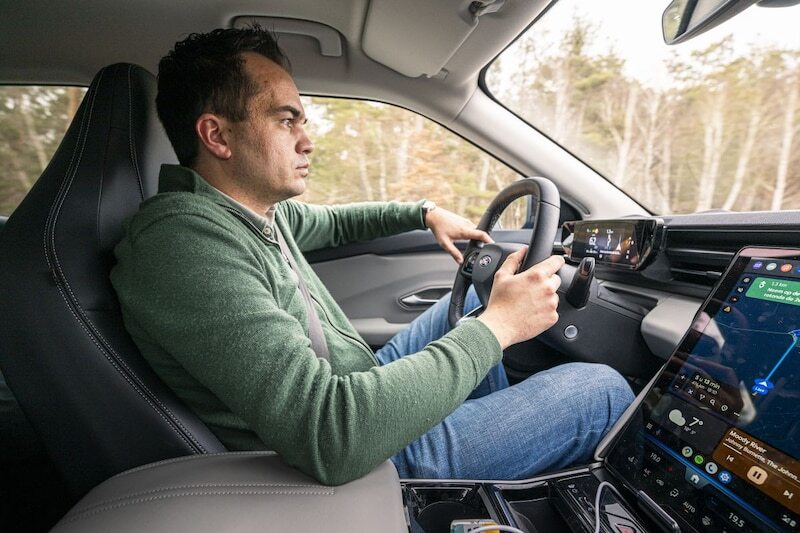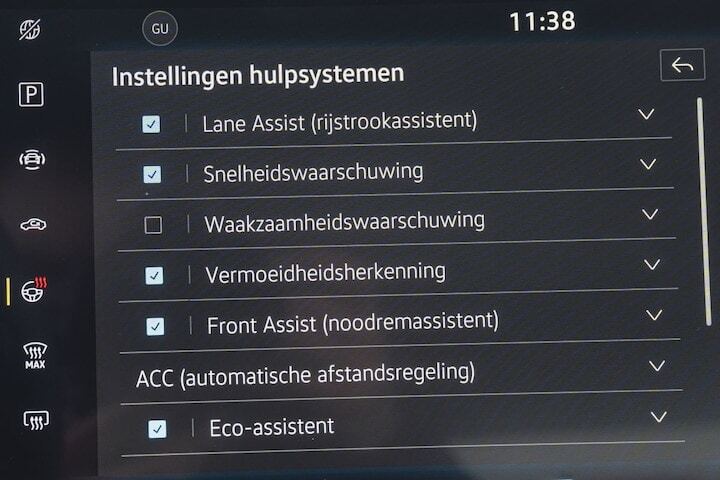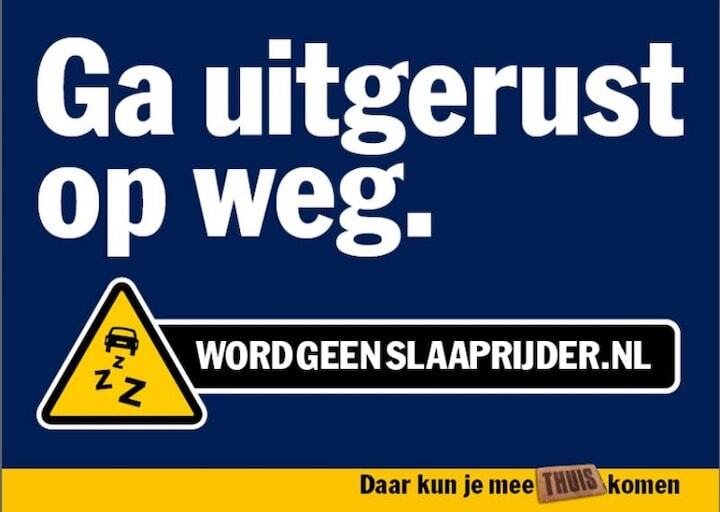
Falling asleep at the wheel is the most underestimated risk in the car. Caffeine, open windows, and loud music don’t help, it turns out. As the days get shorter, the danger of these ‘deadly dreams’ increases rapidly. And during a long drive, such as to a holiday destination, it is also important to be careful.
According to German research, half of all motorists up to 34 years old have experienced at least once during a short car ride that they could not keep their eyes open behind the wheel. On longer journeys, this is even two out of three.
The figures are frightening and make you realize that it surprisingly often ends well with dozing motorists. In the best case, the driver only has to deal with a feeling of; ‘hey, where was I just now?’ But equally numerous are the cases in which the drivers are roughly awakened from their sleep by a crash barrier, hectometer post or grass verge along the road.
Experts call falling asleep at the wheel ‘seconds sleep’, because of its often short duration. According to a conservative estimate, based on foreign studies, fatigue is involved in 10 to 15 percent of serious traffic accidents.

Fatigue recognition on during a long journey?
‘Fallen ill’ as cause
According to experts, the danger is much greater than generally assumed. This is partly because second sleep as a cause of death often disappears under another name in police reports. For example, that the driver is suspected of having fallen ill behind the wheel, or that he lost control of the wheel for unknown reasons.
When the victims survive, they often do not admit that they fell asleep, out of shame or fear of insurance or judicial consequences.
‘Most underestimated risk’
A DaimlerChrysler research department that analyzes accidents considers second sleep, together with inattention as a result of other mental factors, to be by far the most important cause of accidents.
It was already known ten years ago that a quarter of all fatal accidents on the highway happen because the perpetrator could not keep his or her eyes open. The German Road Safety Council therefore calls fatigue behind the wheel the most underestimated risk of the motorist.
People who sleep less than six hours a night are particularly at risk, as are people who have been awake for longer than 20 hours. Also having more than one job, working in shifts and regularly sitting behind the wheel between 00:00 and 06:00 is risky.
Young people mainly doze off at night and in the early morning, it turns out. But from the age of 45, the danger zone shifts to the afternoon. This is due to the regular sleep rhythms of young people, in whom clearly defined sleep and wake periods alternate daily. Older people can manage with less sleep, but have several moments throughout the day when they need sleep.
Loud music only helps for a while
An open window, loud music or caffeine help for a very short time, but then cause even greater fatigue. According to the experts, it is better to go out rested and not drive for more than two hours in a row. Make sure you haven’t eaten too heavily before driving and drink enough.
Ventilation is also important. If fatigue does strike, don’t hesitate and stop the car in a parking lot to make the body and mind alert again with gymnastic movements. It is even better to take a nap. Sleep comes quickly and is intensive, so that 10 to 20 minutes is often enough to continue the journey safely. Waking up is often not pleasant after such a ‘power nap’, but a little later you feel reborn.
In addition to the driver himself, the government can also take measures to prevent accidents as a result of second sleep. For example, by constructing ‘ribbed strips’ along the highway that make a rattling noise as soon as you drive over them. According to the German magazine Stern, such noisy provisions along the highways in the American state of Pennsylvania contributed to a decrease in the number of accidents by about 70 percent.
The main cause of deadly second sleep is overestimation. The advice to take a break at the first symptoms of fatigue is massively ignored. For example, who adheres to the advice of two hours of driving and half an hour of break during the car holiday? Apparently it has to go wrong once and it is to be hoped for the falling asleep motorists that a dream of a few seconds does not end in a gruesome nightmare.

Symptoms of fatigue
– Heavy or closing eyelids
– General feeling of fatigue
– No longer remembering anything from the last kilometer.